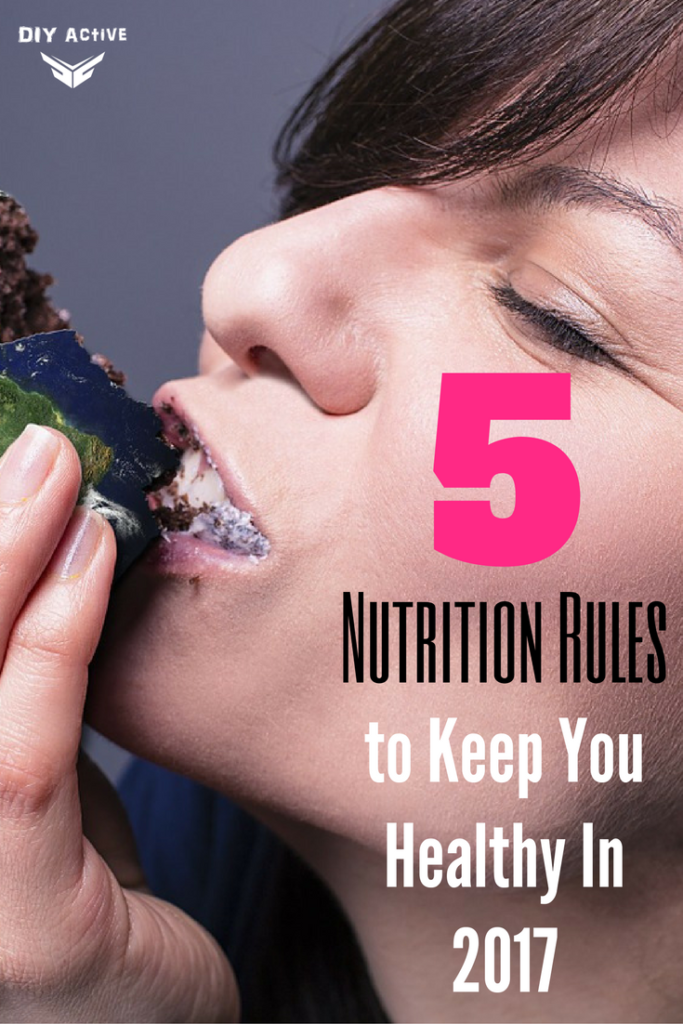
Nutrition Rules…
As you move forward this year, what are some foundational nutrition rules you are going to follow? If you are still on the fence, check out these 5 nutrition rules that you honestly can’t beat!
What nutrition rules do you follow?
“Be healthy”, “lead a healthy life” and “eat healthy” – are just a saying for most people…
Although it may seem hard to do, maintaining a healthy diet is not that difficult. Our grandparents didn’t have all the “healthy products” the supermarkets offer today and still, they were healthier than us (in terms of obesity).
The rules are the same, even if you want to lose weight, gain weight or just have a healthier body. Let’s take a look at the do’s and don’ts of a well-balanced diet!
 1. Avoid any type of toxic food
1. Avoid any type of toxic food
Chips, chocolate bars, or fast foods are known to have a negative impact on our bodies and health. Rich in carbohydrates and fats, these types of food will increase our weight without providing our body with healthy nutrients, such as minerals and vitamins.
Going to fast food and ordering a big portion of fries, or always keeping at hand a cookie for when we crave something sweet can be seen as an addiction. The problem isn’t due to eating a cheeseburger once in a while, but when it becomes part of your daily routine.
It will satisfy your need or hunger, and all the calories will add up.
A high blood sugar level can lead to diabetes, and bad cholesterol will take its toll on your heart and cardiovascular system. Choose fruit instead if you crave sweets, and go for a grilled fish for dinner.
2. No alcohol, cigarettes, or drugs
Even though it may sound like a common piece of advice we usually give to children, each of these substances will seriously deteriorate your health.
A red glass of wine may help you have a healthier heart, but this applies to only one glass per day. After a long and hard day, most people just want to get home and open a beer, which usually leads to a couple more. Alcohol won’t replace your body’s need for food or nutrients, it will just increase the number of calories per day.
Cigarettes or drugs have no benefits but will damage your lungs and affect your nervous system and your brain. Keep away from substances that will harm your body and reduce your lifespan.
3. Cut the sugar and sweeteners from foods
Home-baked goodies can be as bad for your health as candies bought from the supermarket. Cakes, cookies, and candies taste good because they contain high levels of sugar. Because the quantity is too much for our body to process at once, it will lead to high blood sugar, damaging our health.
It’s true that in order for our brain to function at full capacity, our body needs sugar. The difference is in the quantity. If you’re feeling tired, a teaspoon of sugar will have a beneficial effect by giving you an energy boost.
Fructose, taken from fruits will have a similar effect, but with a reduced-calorie intake or the increasing risk of illnesses.
4. Diversify your diet
Any diet is based on balancing the needs of your body with the activities you do during the day. Discover how many calories you should consume each day and then try to get them from more than one source. Include seeds and nuts in your diet that will provide you with healthy proteins and oils. Cereals and grains represent a great source of carbohydrates, while spinach and green foods are rich in fibers.
 Always make sure to have a broad range of foods, and not just settle for what’s easy to reach.
Always make sure to have a broad range of foods, and not just settle for what’s easy to reach.
Salt is good, but only up to 6g a day. Sometimes, we’re not aware of our salt or sugar intake due to not taking the time to read the labels. Even though you might skip the salt altogether, the chances are that the food you consume, like cereals, bread, or sauces, will contain high quantities of it.
5. Don’t skip meals
In an effort to lose weight, or due to a stressful work environment, people tend to skip meals. Especially in the mornings, a regular cup of coffee provides us with enough energy to start the day. Skipping meals is more problematic than we think. During the day, our stomach secretes acid that has the purpose of digesting food.
If there is no food to digest, it will affect the lining of the stomach. Ulcers, heartburn, or esophageal reflux can be caused by this.
If you’re keeping a diet, try to incorporate some foods that will give you enough energy at lunchtime. At the same time, choose something that will make you feel fuller for longer periods. For example, sweet potatoes are perfect for this.
Furthermore, skipping meals makes us crave something easy to reach and with a high-calorie number, such as fast food. Although delicious, one single meal can be the equivalent of double the number of calories necessary for a whole day.
In addition to eating healthy food, it is also important to work out regularly. If you are looking for ways to motivate yourself to workout, you can try setting up a home gym or following an exercise calendar.
Wrap-Up
When it comes to nutrition rules, make it a habit of reading the labels and finding out what products really contain. Balance your meals and watch out for the side effects of alcohol.
It’s a challenge to keep track of everything you eat…
Still, a better understanding of the way food affects us will lead to healthier nutrition and thus, a healthier body.
- Post-Workout Meal: Getting the Most from Your Workout - January 22, 2024
- 6 Ab Exercises To Blast Your Core - December 17, 2023
- 10 Office Exercises You Can Do To Burn Calories - November 19, 2023
 1. Avoid any type of toxic food
1. Avoid any type of toxic food

